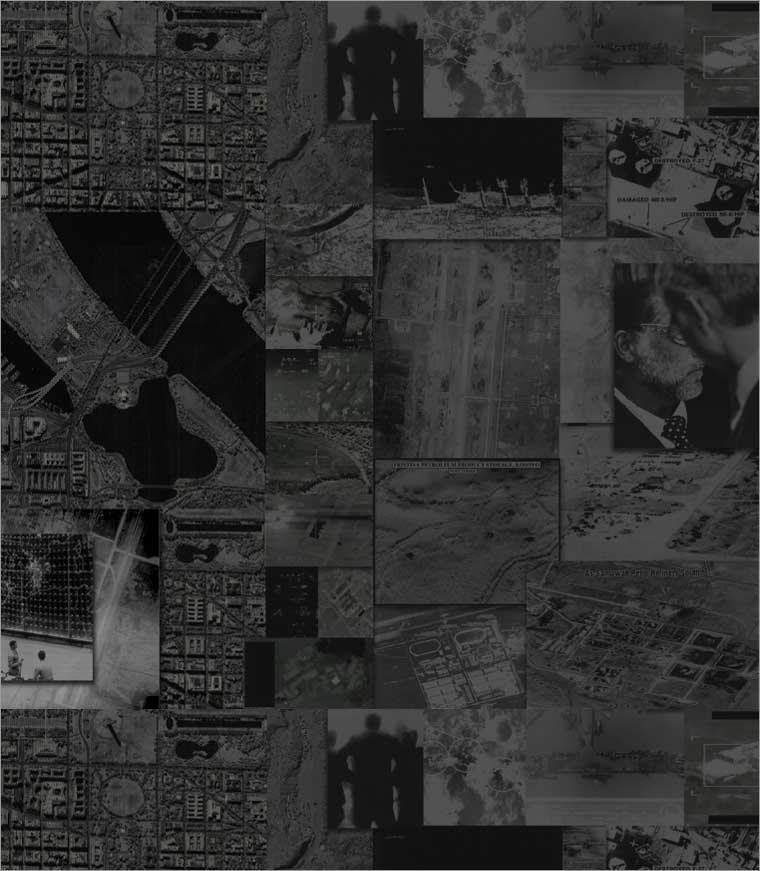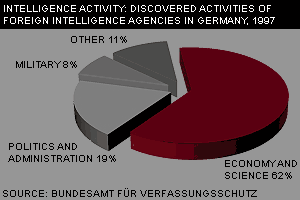 |
 |

Intelligence is knowledge and foreknowledge of the world
that surrounds us. (CIA brochure)
Intelligence is the continuation of war by the clandestine interference
of one power into the affairs of another power. (James Der Derian, author
of Antidiplomacy)

Intelligence
and strategy. Intelligence has always been an integral part of strategy.
Whether in a personal conflict, in market competition or in war, knowing something
before your opponent does, and knowing about your opponent, is of advantage.
The systematic collection and analysis of such information makes up the core
of intelligence.
Intelligence Unlimited. The demise of the bipolar international system
has thrown the murky world of intelligence into disarray. Traditional categories
such as military intelligence, political intelligence, economic intelligence,
and private intelligence have become blurred.
Consequently, intelligence activity migrates into new territories. The job
descriptions of the world's professional information hunters and gatherers
change.
Industrial espionage.
"Yes, dear friends, we have spied on you"
(James Woolsey, CIA Director, on US industrial espionage against Europe through
ECHELON)
Large scale industrial espionage is increasingly carried out by governmental
intelligence agencies. In an economy that is set to rule over the globe, intelligence
is needed to take the risk out of profit. Governmental intelligence agencies
also offer security screenings of managers as a paid service.
Networks of intelligence. As the political and the economic
value of information converge, the actors of the intelligence trade become
more diverse than ever.
"You can't really say that bugging is a sport enjoyed by companies with
three or four letters in their logos only, the whole development has rather
gained its own momentum."
(Hans-Georg Wolf, former East German intelligence expert)
Thousands of business companies, research labs, radio- and TV stations, universities
and religious groups have been shown to collaborate with intelligence agencies.
The enormous amount and value of information collected by private enterprises
exercises a powerful appeal upon the masterminds of the global intelligence
frenzy.
"The strategic context of private enterprise intelligence is a fundamental
starting point for the reinvention of intelligence. There is no more promising
aspect of our profession than that offered by the private sector."
(Robert D. Steele, intelligence consultant)